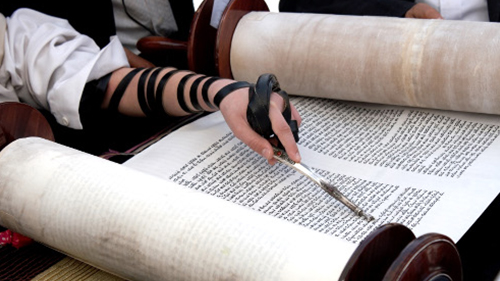Recent Issues By: Rabbi Melanie Aron, Congregation Shir Hadash , Los Gatos, California Lifting the Burden of Unforgiven Pain Anachronistically, I sometimes imagine Joseph in therapy, deciding that his family is too toxic and that he is better off not being in touch with them. After all we have to wonder how the man, who is […]
Recent Issues By: Rabbi Grisha Abramovich, Religious Union for Progressive Judaism in the Republic of Belarus; Rabbi of the Sandra Breslauer “Beit Simcha” Center in Minsk. Miracles of our Holiday, our Chapter and our Life Miracles of our Holiday, our Chapter and our Life It may seem that for Hanukkah one should study less than […]
Recent Issues By: Rabbi Fred Morgan, Emeritus Rabbi, Temple Beth Israel , Melbourne / Professorial Fellow, Australian Catholic University A man came upon him wandering in the fields. The man asked him, “What are you seeking?” He said, “I am seeking my brothers….” The story of Joseph is one of the most unsettling in Torah. […]
Recent Issues By: Benjie Gruber, Israel Movement for Progressive Judaism , Arava Region and Eilat Mistakes from our Ancestors from Generation to Generation In the Torah Portion we read this week, Vayishlach [ and he sent, Jacob sending messengers to his brother ] there is a small incident from which I believe we can learn […]
Recent Issues Rabbi Rene Pfertzel, The Liberal Jewish Synagogue , London, UK / Keren Or , Lyon, France Vayetze : and (Jacob) came out. This is a very interesting way of starting a new parasha, but, of course, it is not a story about a coming out as we could understand this expression today. But […]
By: Rabbi Lea Muehlstein, Northwood and Pinner Liberal Synagogue , Northwood, United Kingdom Sibling Rivalry Most of us bear these scars: marks on our body that remind us of the downside of having siblings. When my sisters and I were little, my mum used to say: “bis der Erste weint – until the first one […]
Recent Issues The Morning After: Iran, Ishmael, and Isaac By Rabbi Mark L. Winer, President of FAITH : the Foundation to Advance Interfaith Trust and Harmony since 1995. MBE PhD DD is a British/American interfaith scholar and leader. In 2014 Queen Elizabeth II appointed him a Member of the Order of the British Empire (MBE) […]

